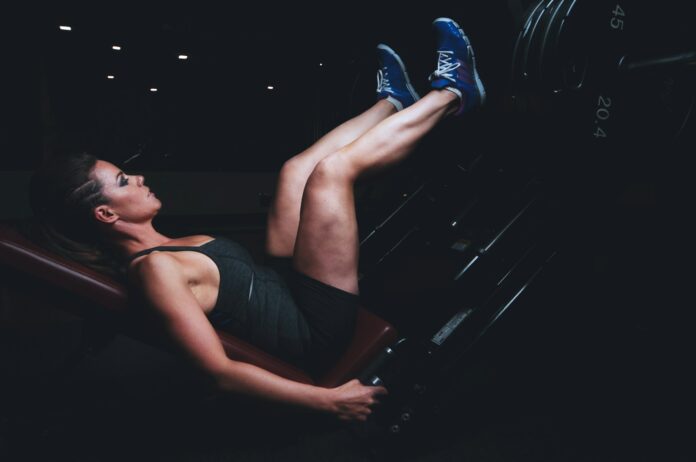Starting a fitness journey can feel overwhelming, but understanding the essentials ensures a smoother, more rewarding experience. Whether your goal is weight loss, muscle gain, improved endurance, or overall health, establishing the right foundation is key to long-term success. This guide covers the must-know basics for beginners, providing the tools to build a solid fitness routine that fits into daily life.
Setting Realistic Fitness Goals
Before jumping into workouts, define clear, achievable goals. Setting unrealistic expectations often leads to burnout or disappointment. Start small and build gradually.
Short-Term vs. Long-Term Goals
- Short-Term: Aim to work out three times a week or walk 8,000 steps daily.
- Long-Term: Consider goals like running a 5k, losing 10 pounds, or building visible muscle tone over six months.
- Track Progress: Use fitness apps, journals, or simple notes to monitor achievements and stay motivated.
Choosing the Right Type of Exercise
“Not every workout fits every body – find what moves you and enjoy the process.”
Consistency thrives on enjoyment. Beginners often quit because they engage in workouts they dislike. Experiment with different exercises to find what resonates.
Popular Exercise Categories
- Cardio (Heart Health and Fat Burn): Walking, running, cycling, or swimming.
- Strength Training (Muscle Growth): Weightlifting, bodyweight exercises, or resistance bands.
- Flexibility (Mobility and Recovery): Yoga, pilates, and stretching routines.
- Functional Training: Exercises mimicking real-life movements (squats, lunges, and planks).
Building a Balanced Routine
A balanced fitness plan incorporates elements of cardio, strength, and flexibility. This variety enhances overall health, prevents injuries, and keeps routines interesting.
Beginner Workout Split
- Day 1 (Strength): Full-body weight training.
- Day 2 (Cardio): 30-minute brisk walk or jog.
- Day 3 (Rest or Active Recovery): Stretching or light yoga.
- Day 4 (Strength): Focus on lower body.
- Day 5 (Cardio/HIIT): 20-minute high-intensity interval training.
- Day 6 (Flexibility): Full-body stretch.
- Day 7 (Rest): Full rest or leisure walk.
Nutrition: Fueling Your Fitness Journey
Exercise alone isn’t enough; nutrition plays a critical role in achieving fitness goals. A balanced diet supports performance, recovery, and muscle growth.
Key Nutrients to Prioritize
- Protein (Muscle Repair): Lean meats, fish, eggs, and legumes.
- Complex Carbs (Energy): Quinoa, brown rice, oats, and sweet potatoes.
- Healthy Fats (Hormonal Health): Avocados, nuts, seeds, and olive oil.
- Hydration: Drink at least 2 liters of water daily to stay energized and prevent dehydration.
Buy Myprotein Products for Optimal Nutrition
To simplify your nutrition plan, consider high-quality supplements from Myprotein. From protein powders to vitamins, Myprotein offers a wide range of products to fuel workouts and support recovery. Browse the full collection at Myprotein and find supplements tailored to your fitness journey.
Essential Equipment for Beginners
You don’t need an expensive gym membership to start your fitness journey. A few essential pieces of equipment at home can provide everything necessary for a well-rounded routine.
Home Gym Essentials
- Dumbbells (5-20 lbs): Great for strength training.
- Resistance Bands: Ideal for stretching and bodyweight workouts.
- Yoga Mat: Useful for core exercises, stretching, and yoga.
- Jump Rope: A simple but effective cardio tool.
- Foam Roller: Essential for post-workout recovery and muscle tension release.
Staying Motivated and Consistent
Consistency is the biggest challenge for beginners. Building habits takes time, but small steps lead to long-term results.
Tips to Stay on Track
- Workout Buddy: Partner with a friend for accountability.
- Schedule It: Treat workouts like appointments.
- Track Progress: Celebrate small wins – weight lifted, steps walked, or inches lost.
- Variety: Rotate exercises regularly to keep routines fresh.
- Rest and Recovery: Listen to your body and incorporate rest days to prevent burnout or injury.
Overcoming Common Fitness Challenges
Lack of Time
- Opt for 15-20 minute home workouts.
- Break exercise into small segments throughout the day (10-minute morning and evening sessions).
Low Energy
- Fuel up with healthy snacks like bananas, Greek yogurt, or protein shakes before workouts.
- Aim for 7-8 hours of sleep to enhance performance and recovery.
Plateaus
- Increase intensity by adding more reps, weights, or duration.
- Switch workout styles every few weeks to challenge the body differently.
Mental Health Benefits of Exercise
Physical activity doesn’t just improve body composition; it significantly boosts mental well-being. Regular workouts reduce stress, combat anxiety, and improve mood by stimulating endorphin release.
- Stress Relief: Exercise lowers cortisol levels, enhancing relaxation.
- Boosted Confidence: Achieving fitness milestones builds self-esteem.
- Sharper Focus: Increased blood flow to the brain improves concentration and cognitive function.
Tracking Progress: Measuring Success
Tracking progress provides a clear picture of improvements and areas to focus on. This keeps motivation high and prevents discouragement.
Ways to Track Fitness Progress
- Body Measurements: Measure waist, hips, chest, and arms monthly.
- Fitness Journal: Record weights lifted, reps, and sets.
- Photos: Take progress photos every four weeks.
- Fitness Apps: Use apps to log workouts, calories, and step count.
News Box: Stay Informed on Health and Wellness
For ongoing fitness and health tips, visit News Box. Stay updated on the latest trends, from beginner guides to expert advice, to enhance your health journey.
Conclusion: Start Strong and Stay Committed
Beginning a fitness journey can seem daunting, but every small effort leads to long-term progress. “Your fitness journey begins with one step, and every step forward builds a healthier you.”
Support your fitness routine with quality products from Myprotein. Fuel your body, stay consistent, and celebrate each milestone along the way.

